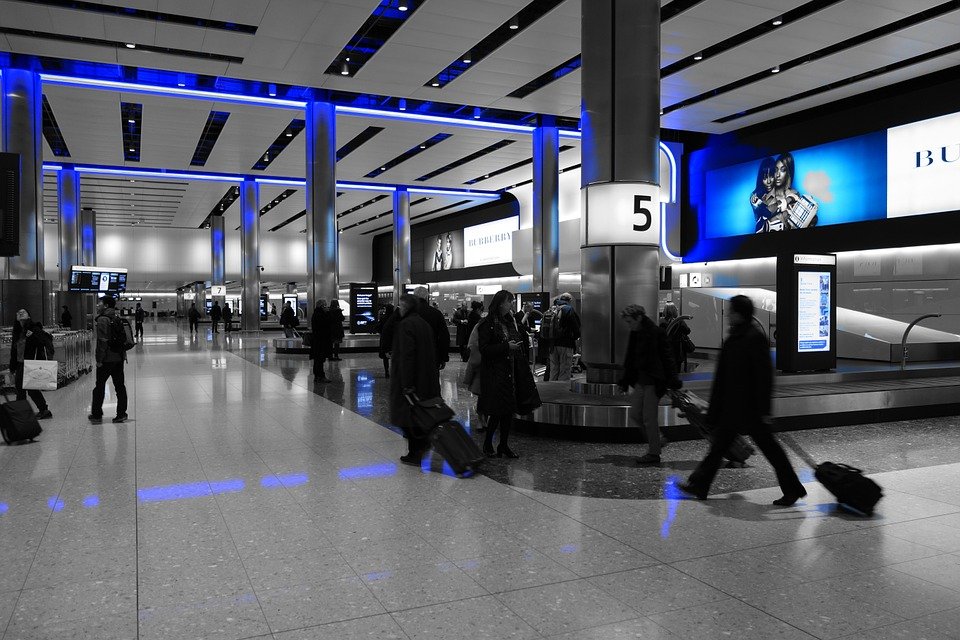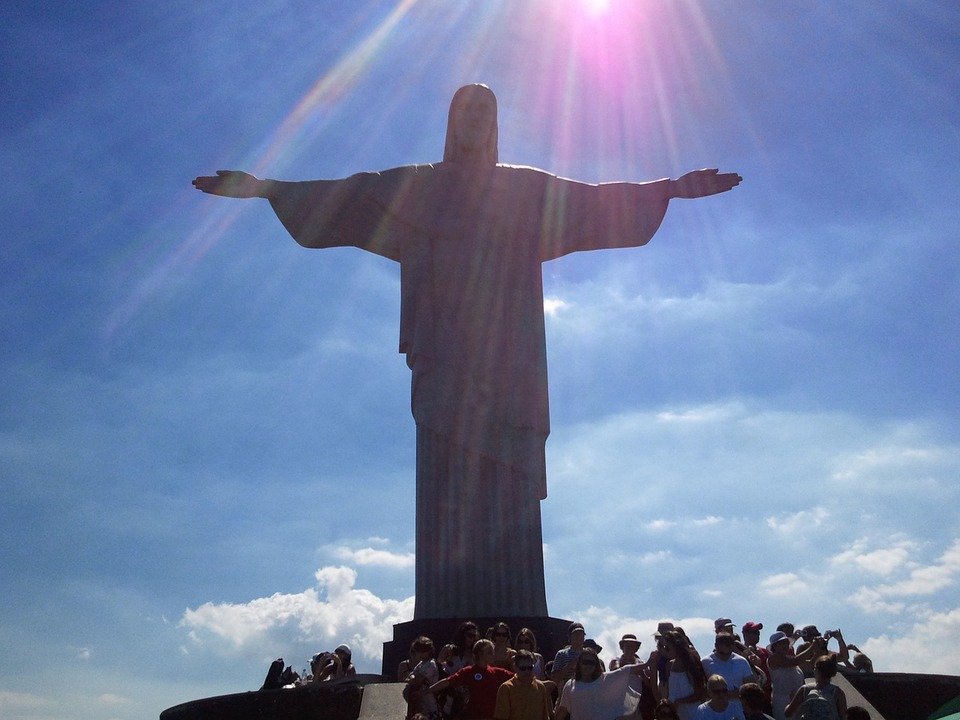Health and safety concerns for Rio 2016

With reports of collapsing sailing ramps, the Zika virus and dirty water, SHP asks: is Rio really ready for the Olympics?
Tonight the world will watch as Rio opens the 2016 Olympic Games. The build-up to the world’s largest sporting event has been marred by controversy, but problems have plagued the Games since before the build even began.
The Rio Games have big shoes to fill following the London Olympics, which was statistically the safest Games ever, with a reported injury rate of 0.17 per 100,000 man-hours – far below the 0.55 building industry average in the UK. London 2012, for the first time in Olympic history, saw all projects completed without a fatality.
By contrast, 11 workers died during construction of Rio Olympic facilities or Games-related projects between January 2013 and March 2016, a report by Rio de Janeiro’s Regional Labor and Employment Office shows. The causes of death vary from electric shock to falling scaffolding. There were also cases of workers being buried and vehicles overturning.
With Brazil in the midst of its worst recession in decades, many have questioned at what price these Games will come, and if that price will be a human one.

I am sure that the Rio Games will be completely safe for athletes, participants and spectators. What’s more, we will put on a memorable Olympic and Paralympic Games, a party of joy and unity, something that Brazilians know how to do well. Come and join us. – João Grangeiro, Rio 2016’s chief medical officer
Jobs boost
Reports say that hundreds of families displaced for a high-speed bus lane in the Olympic village are yet to be compensated, and many feel that communities have been destroyed in order to house competitors.
But it’s not all doom and gloom. Organisers of the Olympic and Paralympic Games claim to have created more than 90,000 jobs for local Brazilians, while a further 85,000 outsourced staff will be hired by third-party companies.
As well as boosting the Brazilian jobs market, it is hoped that the huge recruitment drive will provide a range of new skills for the workforce, leaving a legacy to the service sector in particular.
According to a study by the Institute of Administration (FIA) at the University of São Paulo (USP), the Games could boost the Brazilian economy by as much as R$102 billion.

Health and safety for competitors
For those competing in the Games, serious concerns have been raised this week over contamination of waters in Marina da Gloria port, where the sailing will take place, with raw sewage and waste, as well as the beaches of Ipanema and Copacabana where the marathon swim will be held.
The main ramp of the sailing port collapsed on Sunday (31 July) after being impacted by high tides and stormy seas, according to Rio 2016 spokesman Philip Wilkinson. Training should not be affected by this incident, it was said.
“It would be wrong to make a great deal [of the incident],” said IOC spokesman Mark Adams. “In the run-up to the games, things happen.”
While there have been reports of unsanitary environments in the Olympic village, Team GB have reported good conditions. Australian team chief Kitty Chiller, however, described the village as “simply not safe or ready” after his team arrived to problems with gas, electricity and plumbing. It was decided that the entire team would stay in hotels until the problems had been rectified.
Health and safety for travellers
For those travelling to the Games, travel advice from the UK Government covers a variety of health and safety topics, including information about the Zika virus outbreak in Brazil. PHE and NaTHNaC (Yellow Fever Vaccination Centre Initiative) currently recommend that pregnant women postpone non-essential travel to areas where there is active Zika virus transmission until after pregnancy.

Visitors to the Rio Games should protect themselves against mosquito bites by using insect repellent. Dr Dipti Patel, director at NaTHNaC, said: “A number of tropical diseases like malaria, dengue and yellow fever occur in some regions of Brazil and there are a range of other potential health hazards. We encourage travellers to seek travel health advice early, ideally four to six weeks before travel. This gives them time to organise any preventive measures, like vaccines or antimalarial tablets, which they may need. We also advise travellers to check NaTHNaC’s country information page for Brazil for specific recommendations.”
As always in warm climates, travellers are advised to drink plenty of water and apply sunscreen regularly.
Tourists are warned to avoid swimming in lakes and rivers and to avoid contaminated water sources.
Rio’s response
In an article posted on the Rio 2016 website, João Grangeiro, Rio 2016’s chief medical officer, issued this response to widespread Zika worries: “The incidence of the mosquito that transmits the virus is extremely low in August and September, which is winter in Brazil and the period in which the Rio 2016 Games will take place. Statistics from the Ministry of Health, which has a history of data on dengue, a virus also transmitted by the aedes aegypti mosquito, back up this statement.
“Furthermore, we have conducted 44 test events this year, the majority of them in the summer, the peak period for Zika. With more than 7,000 athletes, 8,000 volunteers and 2,000 staff participating, there was not a single case of contamination.

“We are completely in line with the World Health Organisation (WHO), following their guidelines as well as the recommendations of the International Olympic Committee (IOC). The WHO, the IOC and Rio 2016 would never put the health of athletes or tourists that will visit the city at risk. We are carrying out the organisation of the Games responsibly and with a thorough understanding of the complexity of our mission.
“We will maintain mass and individual preventative measures. Municipal healthcare authorities will continue to carry out daily inspections at Olympic venues. We will also continue to give guidance to the athletes, delegations, all accredited visitors and spectators. We will act with absolute transparency including with pregnant women or women intending to have children in the near future, because of the threat of microcephaly. We know just how sensitive the issue is; pregnant women sometimes do not experience the general light symptoms that Zika usually provokes, so we advise they consult their doctor to understand the risks before travelling.”
Health and safety concerns for Rio 2016
With reports of collapsing sailing ramps, the Zika virus and dirty water, SHP asks: is Rio really ready for the
Lauren Applebey
SHP - Health and Safety News, Legislation, PPE, CPD and Resources Related Topics
Webinar: Risk Management Redefined: How To Drive Continuous Improvement
Webinar: Enhance Health and Safety in Your Supply Chain by Empowering your Contractors
Webinar: Defensive Driving: Reducing the risk of collisions






[…] Source: SHPonline […]
[…] another 85,000 contractors hired by third-party companies. Additionally, the games are expected to leave a legacy of skilled labor in place, which, in theory, will pay dividends to the Brazilian economy in years to […]
first it was aids then swine flu then bird flu then ebola then that other thing affecting africa cant even remember its name it was so insignificant now zeka, when will people wise up and realise that this is NWO tactics to reflect from real issues going on so they can furtjher develop their social engineering strategies